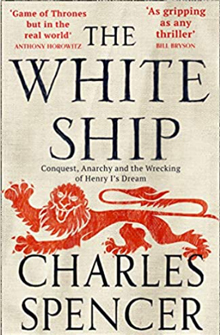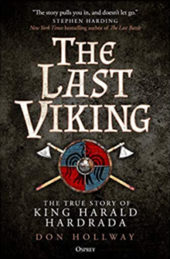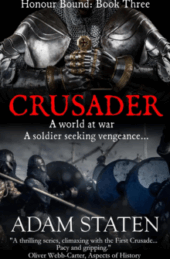‘No ship that ever sailed brought England such disaster.’ So said William of Malmesbury writing in the 12th century about the events of a freezing cold November night in 1120 which ultimately led to the destruction of Henry I’s carefully engineered legacy. It was true then, and there is an argument to be had that it remains true to this day. The story of the White Ship – so vividly portrayed here by Charles Spencer – is fascinatingly ironic on many levels. That the 35-year rule (29 in Normandy) of one of the most accomplished monarchs of the medieval period was followed by almost two decades of civil strife in which thousands were to lose their lives (a period that tellingly became known as ‘The Anarchy’), is perhaps the most glaring juxtaposition.
Then there is the fact that Henry I holds the record (if we can call it that) of fathering the most illegitimate children (22) of any monarch before or since. And yet it was to be his one legitimate son, William Ætheling – on whom all his hopes for a stable succession were pinned – that he was to lose in the White Ship disaster.
The captain of the White Ship was a man by the name of Thomas FitzStephen. He was the son of Stephen FitzAirard, the man who had served Henry’s father – William the Conqueror – so well as captain of The Mona, William’s flagship for his invasion of England in October 1066. That his son, Thomas, was (at least in part) responsible for the death of William’s grandson is cruel fate to say the least. As soon as he realised that the Ætheling had drowned, Thomas chose to let the icy waters of the Channel take him rather than risk the wrath of the distraught king.
Finally, we should mention that the man who would seize power after Henry I’s death (his nephew, Stephen of Blois) had been ready to sail on the White Ship, only to suffer a bout of diarrhea so virulent that he preferred to disembark before she set sail, rather than suffer the ignominy and embarrassment that the voyage would cause him.
All these points and their consequences are brought to life within the pages of Spencer’s eminently readable tome. The book is divided into three parts with the disaster and its immediate aftermath neatly positioned at its core. Leading up to the drama of that night, Spencer sets the scene by introducing the players on the stage and their background. We learn how unlikely it was that Henry – the youngest of The Conqueror’s four sons – should ever have acceded to the throne of England, and how hard he had to fight his two older brothers – William Rufus and Robert Curthose – to carve a future for himself after their father had split his kingdom between his siblings.
But once Henry came to power in 1100 (1106 in Normandy) he was to spend the next two decades skillfully and ruthlessly scheming and manoeuvring to ensure that all he had fought for and achieved would be handed over seamlessly to his son.
In the final part, Spencer describes how, even after William Ætheling’s death, King Henry continued to work tirelessly to repair the damage. When his second marriage – to Adeliza of Louvain – failed to produce any more offspring (a further irony given that she went on to have several children with her second husband), Henry put all his energy into securing support for the smooth succession of his daughter, Mathilda – known as the Empress on account of her previous marriage to the Holy Roman Emperor.
But in a final irony, all his hard work, all the promises diligently exacted from the earls and bishops, quickly began to unravel almost as soon as Henry was dead. Despite her several qualities for the role, a significant part of 12th century England was just not yet ready or willing to accept a female ruler. It was only with the accession of her son, Henry II – great-grandson of the Conqueror and the first Plantagenet king – in 1154, that England and Normandy would see a return to anything approaching stability.
This well-researched and compellingly written book will have historical enthusiasts hooked. It is a key episode in an otherwise under-represented era of our nation’s history, and Spencer expertly manages to bring it to life in a way that will excite and enthrall his audience.
Paul Bernardi is the author of the Huscarl Chronicles series dealing with the Norman Conquest and its aftermath. His latest novel is Blood Price.







